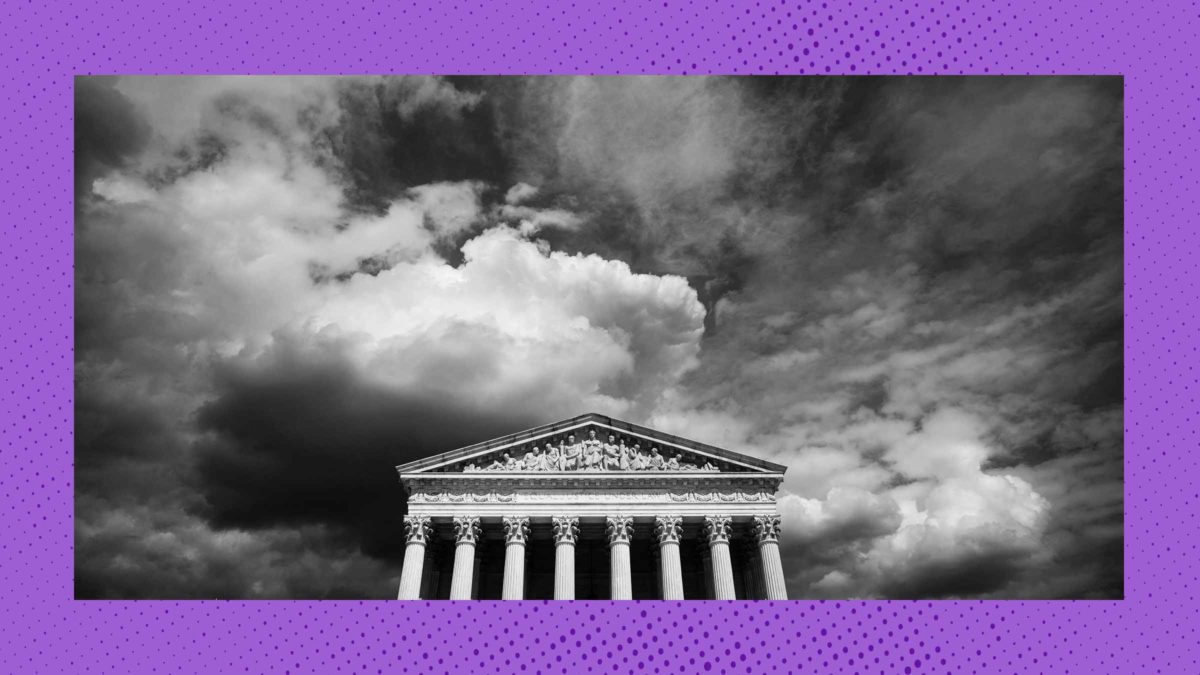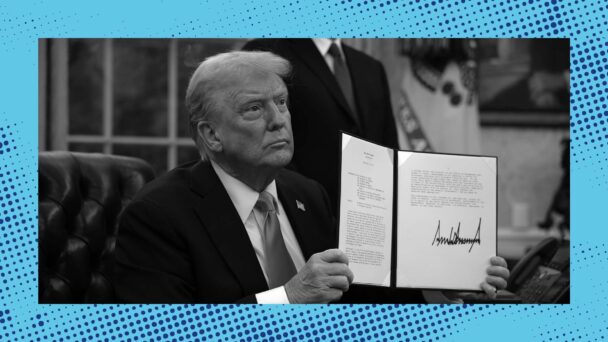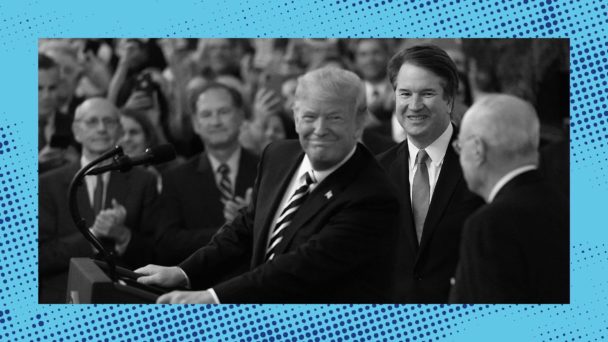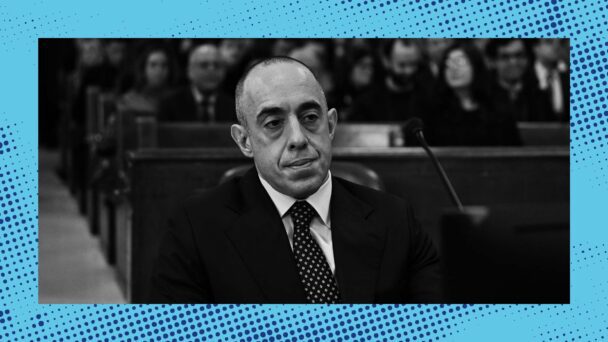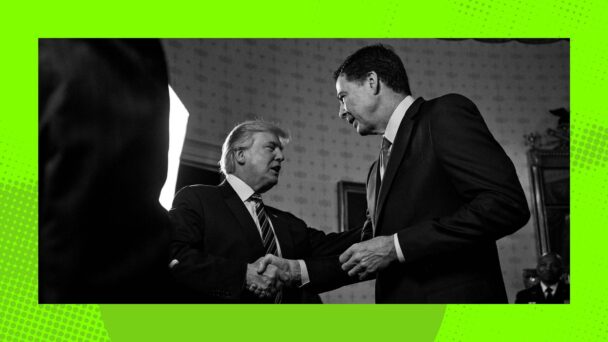Among the more challenging aspects of following oral argument in Trump v. CASA, a case about President Donald Trump’s executive order purporting to end the Fourteenth Amendment’s guarantee of birthright citizenship, is that the justices did not spend much time discussing Trump’s executive order purporting to end Fourteenth Amendment’s guarantee of birthright citizenship. This is because CASA, which the Supreme Court heard on Thursday, is supposedly about a different question: the propriety of nationwide injunctions, which multiple federal district courts have entered to temporarily prevent Trump’s order from taking effect—not only in their districts, but everywhere else in the country, too.
In the case of the birthright citizenship order, the rationale for these injunctions is simple: If an anti-immigrant president is really going to try and post his way around more than a century of precedent, courts should at least preserve the status quo until litigation is over, rather than immediately require hospitals to start denying Social Security numbers to anyone in the maternity ward who can’t show their papers.
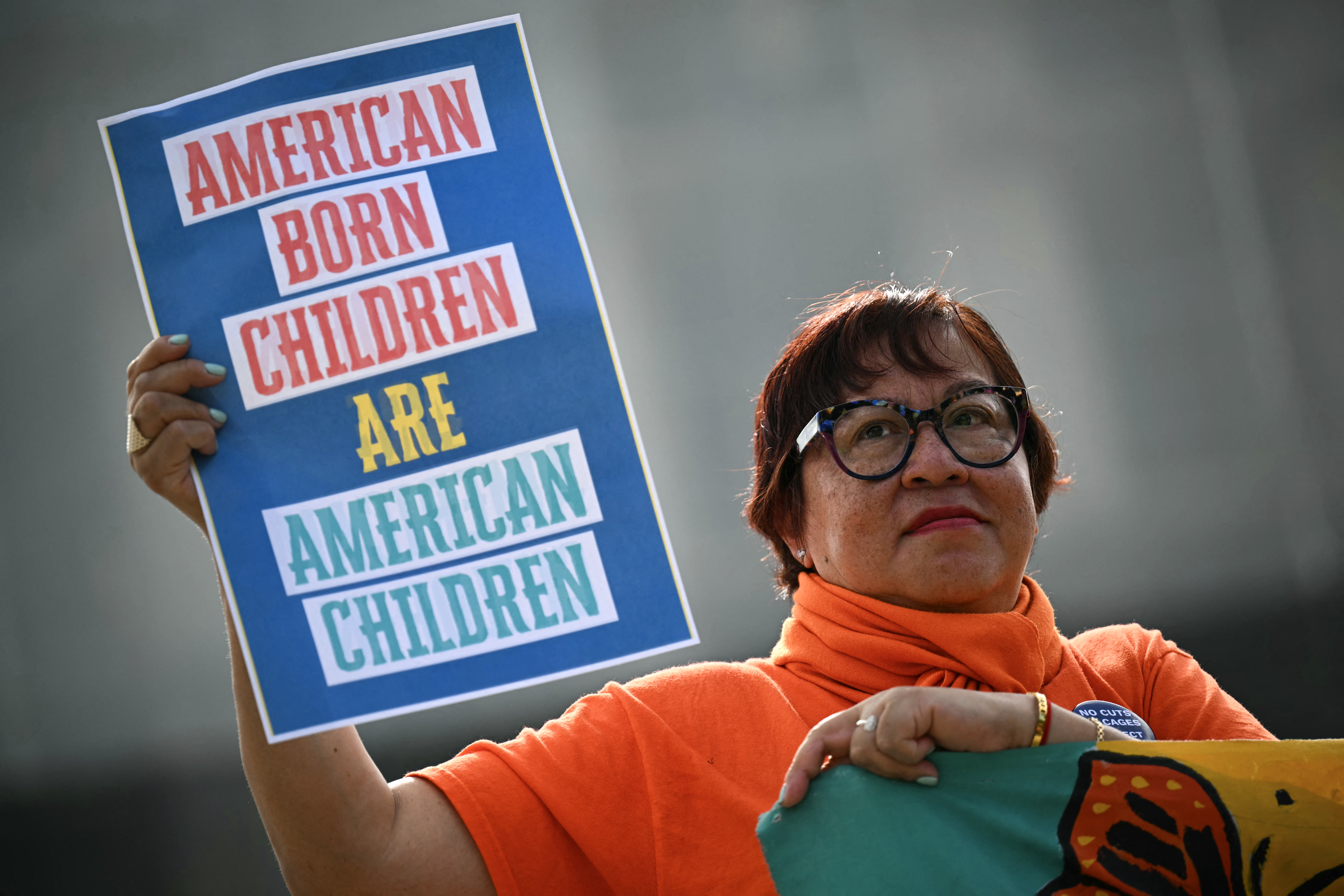
(Photo by DREW ANGERER/AFP via Getty Images)
Nationwide injunctions have become common over the past decade or so, and typically block a president from one party from doing something that a judge from the other party does not like. During the Biden administration, judges used these injunctions to block COVID-19 vaccine mandates and stop the White House from limiting oil and gas leases; under Trump, judges have used them to prevent him from disappearing immigrants with protected status, and from cutting funding to schools with curriculum the administration deems too woke.
Politicians and judges from both parties have complained about the proliferation of universal injunctions, although their opinions about the pros and cons tend to correlate with their opinions about the policy being blocked. Or, as Justice Elena Kagan put it at oral argument in CASA, it is not a coincidence that “in the first Trump administration, it was all done in San Francisco, and then in the next administration, it was all done in Texas.”
CASA ostensibly gives the justices a chance to clean up the mess—to set some standards for when judges can and can’t, as Justice Neil Gorsuch wrote last year, “govern an entire state or even the whole Nation from their courtrooms.” The substantive question—whether the Fourteenth Amendment means what it says, or what a handful of fringe legal scholars and election conspiracy theorists think it ought to say—will ostensibly wait for another day.
On Thursday, the justices only occasionally acknowledged the reality that their answer to this “narrow” question could strip millions of people of their U.S. citizenship. Justice Brett Kavanaugh, who usually strains to avoid discussing the real-world implications of his reactionary politics, at least started to bring it up in an exchange with Trump’s Solicitor General, D. John Sauer. “On the day after it goes into effect—this is just a very practical problem—how’s it going to work?” Kavanaugh asked. “What do hospitals do with a newborn?” Just as quickly, though, he backed off: After Sauer responded that officials would “hopefully” be able to “figure that out”—not exactly an answer that inspired confidence—Kavanaugh did not follow up.
As is often the case, it was Justice Sonia Sotomayor who spent the most time trying to establish the stakes for people who are not civil procedure professors. In an exchange with New Jersey Solicitor General Jeremy Feigenbaum, she pointed out that babies born in states not subject to an injunction—so, states with no birthright citizenship—would face serious logistical hurdles to accessing benefits if they move to states that honor birthright citizenship. “23 states are going to have babies who were born somewhere else without a birth certificate,” Sotomayor said. “If they move into your state, you’re going to have to do the checking.”
This is not speculation: According to Feigenbaum, each year, some 6,000 babies are born out-of-state to New Jersey residents, and Trump’s executive order would require the state to administer costly citizenship verifications for each of them. Whether a child could be deported, Feigenbaum noted, could hinge on something as simple as whether they live in Philadelphia (not subject to an injunction) or across the river in Camden (protected by an injunction, for now), or even which side of the river they are standing on at that particular moment. Historically speaking, when the rights associated with citizenship have toggled on and off at state borders, democracy has not been in a great place.
The Court has a history of camouflaging its exercises of political power by answering legal questions that sound innocuous, especially in the early stages of litigation. They used a dispute about voting in Wisconsin to give themselves more power over the administration of elections. They used a challenge to in-person worship services during the COVID-10 pandemic to strengthen the ability of Christians to ignore neutral laws on religious freedom grounds. And they used a convoluted question about standing to functionally end the right to abortion care in the nation’s second-most populous state, months before they overturned Roe v. Wade for good. In that case, Sotomayor called the Court’s decision “stunning,” and excoriated her colleagues for ignoring its “immediate impact” and opting to “bury their heads in the sand” instead.
The same thing is happening here. Allowing Trump’s order to take effect, even temporarily, would exacerbate existing barriers to prenatal care, increasing healthcare costs and putting newborns in mortal danger. It would cut off children from nutritional assistance, Medicaid, and other vital benefits to which citizens are entitled. It would make their families less likely to seek medical care, fearful that a trip to the doctor’s office will end in arrest and deportation. And as Sotomayor pointed out, it would create a class of “stateless” children born in the United States to non-citizen parents, since some countries do not confer citizenship on children of their citizens born abroad. Again, historically speaking, it has been very, very bad when countries do this.
If the Court sides with Trump in this case, the justices will spend a lot of time in their opinion discussing universal injunctions—what factors trial court judges must consider, what tests they must implement, and what types of circumstances do and do not warrant relief. But they will not talk about the children forced to live their lives on the margins of society as a result, because Supreme Court justices never want to talk about such trifling matters. Their magisterial job is to say what the law is. The consequences for little people are always for little people to worry about.
